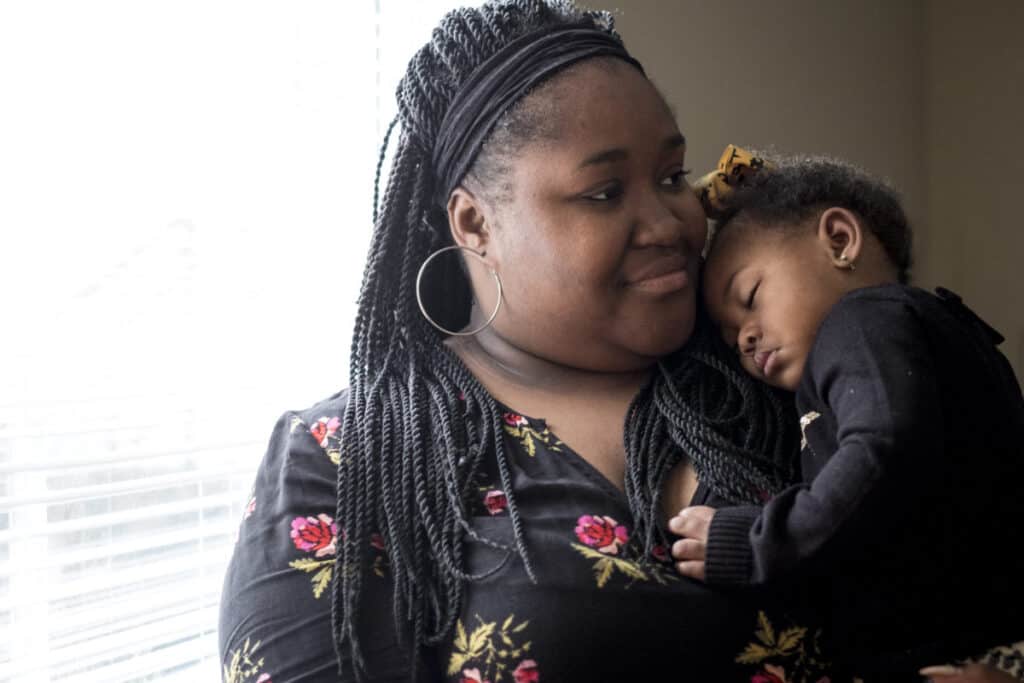If your child with a disability is turning 18, they are about to reach the age of majority. They are now legally considered to be adults and can make their own decisions. At this time, you no longer have the right to make decisions for them or sign paperwork like IEP forms, or consent for medical care. They also call this a time for the “transfer of rights”.
This can come as a shock when our children have disabilities and need more care, supervision, or support than a neurotypical teen.
There are a few things you need to consider and do before your child turns 18. We’ll describe these here, and suggest what to do–and when–so that you and your child are ready.
Explore if your child may need Guardianship or decision-making support
There are many ways to help your child with decision-making when they turn 18. You always want to let them keep as much control as they can handle, while still being safe. But if you feel it’s necessary, you can get legal permission to make decisions for them.
People with intellectual disabilities often need help making decisions in order to protect themselves from harm. Sadly, there are people who try to take advantage of them. If a parent or other responsible adult is helping them, they are less likely to get talked into doing things like sending people money for a scam, or signing a fake lease.
Guardianship is a legal status and means that the court appoints another person (the guardian) to make decisions on behalf of the person with a disability. This is not an all-or-nothing decision. If your child needs help in some areas of life but not others, you can set it up to give them control of the parts they can manage, but give you control of the things they need help with. Even so, this is the most restrictive option because it takes away some of their rights.
The process of getting guardianship can take up to a year, so it’s important to get this settled before your child turns 18!
Supported decision-making is a process that allows a person with a disability to make their own decisions with support from a team of people they trust, instead of having someone else make decisions for them.
There are also other ways to get legal permission for specific decisions around education, healthcare, and money management.
What about state or federal benefits when a child with a disability turns 18?
If your child is getting government benefits like SSI, Medicaid, or services from your state disability agency, they may have to apply again as an adult. And there may also be benefits that they didn’t qualify for before, but now they do.
Some benefits, like SSI and Medicaid, have different criteria for children and adults and different forms to fill out. The good news is that when your child is 18, they may qualify for new benefits. Because your child is a legal adult, the government does not count your family’s financial resources to see if they are under the limit to qualify for benefits. They only count your child’s income and resources. (Read more about SSI income and resource limits.)
What you can do:
- Contact the agencies your child is already getting services from and see if you need to re-apply
- Learn about other social service agencies for adults with disabilities that can support your child at this time
***********************
Massachusetts:
If your child has been getting services from DDS, the Department of Developmental Services, they will need to re-apply as an adult.
Louisiana:
You may have been in touch with the OCDD: the Office for Citizens with Developmental Disabilities. Contact them again before your child turns 18 to ask what other benefits they may qualify for. Ask if they have to apply again for anything.
If your child has been getting a Medicaid Waiver through the OCDD office, it should switch automatically to support their needs as an adult. But you should call anyway, and keep them up to date on your child’s age, contact information, and current needs for support.
Many children have been getting the NOW Waiver, and were told it ends when a child is 19. Now the system is different and is supposed to support a person’s needs throughout the transition. Check with your OCDD office to be sure they know your child’s current needs.
***********************
Make sure your child registers to vote
Voting is an important right for all of us! It’s a way to shape our communities and protect the programs that improve our lives and those of our loved ones. It can also help young adults engage in society, and feel empowered to have a say in what happens in their world.
All people should keep this right to vote, and register when they turn 18. The only exception is if they have an intellectual disability that makes them unable to make an informed decision, even with support. (In most states, if you have full guardianship of your child, they will not be able to vote.)
Here’s what you can do:
- Talk to your child (if possible) about the voting process, laws and candidates, and how to make decisions like this
- Help them register to vote!
- Help them vote! Maybe make a plan to vote together?
Resources:
- Go to Vote.Org to find everything you need to register and vote in your state
- Look up your state’s accommodations for voters with disabilities
Make sure your child registers for Selective Service
There is no military draft in the U.S. at this time. Military service is voluntary. The Selective Service System is just a list of adult men in case of a national crisis.
All men who are over 18 and are US citizens or immigrants are required to register for Selective Service — even if they have a disability that would make it impossible for them to serve in the military. We know, it doesn’t make sense, but it’s the law.
What about transgender and non-binary adults? Registration is based on the sex your child was assigned at birth. Technically, all people who were born male are required to register. (Despite how hurtful this is to many people, it’s the law for now.) Learn more about Transgender people and Selective service.
Important things to know:
- If your child has a disability that would disqualify them from serving, they would not have to, even if there was a national emergency
- Federal law requires your child to register within 30 days of turning 18 (Don’t worry, if you register past the 30 days, nothing terrible will happen!)
- After age 26, they do not accept registration
- If your child does not register, they may not qualify for certain types of student financial aid, federal employment, and federal job training programs
Don’t worry! This is mostly a formality.
How to register:
- Fill out this online Selective Service registration
- Or you can print this form and send it in
- Either way, it’s very quick!
Apply for Section 8 or Housing Choice Vouchers
Section 8 is a program that helps families with very low income to pay their rent. It’s also called the Housing Choice Voucher Program.
If your child may need help affording their own apartment in the future, it’s a good idea to put them on this list now. The waitlist is usually very long, sometimes several years.
If your child qualifies based on their income, you would help them find their own housing. The Housing Authority is supposed to check to make sure it’s a safe and healthy environment, and then they will pay part of the rent (a voucher). Your child would not pay more than 30-40% of their income on rent.
To get on the waitlist, call your local Public Housing Authority (PHA). You can get on more than one list, and it’s probably a good idea to get on lists for several towns where your child may want to live.
There is a lot to think about as your child with a disability approaches the age of 18. It’s best to know in advance what you’ll need to do, and get started early. You’ve got this.
Learn More:
- Read more about the Transition to Adulthood
- Transition Timeline: How to help your child get ready for life after high school
- Read more about the Age of Majority



